-
 Bitcoin
Bitcoin $114200
0.00% -
 Ethereum
Ethereum $3637
0.56% -
 XRP
XRP $2.950
-2.01% -
 Tether USDt
Tether USDt $0.9999
0.02% -
 BNB
BNB $761.0
0.55% -
 Solana
Solana $164.1
-1.38% -
 USDC
USDC $0.9999
0.02% -
 TRON
TRON $0.3332
0.36% -
 Dogecoin
Dogecoin $0.2012
-0.52% -
 Cardano
Cardano $0.7261
-1.41% -
 Hyperliquid
Hyperliquid $37.62
-2.13% -
 Stellar
Stellar $0.3930
-2.65% -
 Sui
Sui $3.441
-0.16% -
 Bitcoin Cash
Bitcoin Cash $563.8
0.70% -
 Chainlink
Chainlink $16.50
0.09% -
 Hedera
Hedera $0.2424
-0.14% -
 Ethena USDe
Ethena USDe $1.001
0.01% -
 Avalanche
Avalanche $22.20
0.00% -
 Litecoin
Litecoin $118.0
-2.48% -
 UNUS SED LEO
UNUS SED LEO $8.991
0.12% -
 Toncoin
Toncoin $3.195
-3.87% -
 Shiba Inu
Shiba Inu $0.00001217
0.12% -
 Uniswap
Uniswap $9.674
-0.21% -
 Polkadot
Polkadot $3.633
1.00% -
 Monero
Monero $295.3
-0.82% -
 Dai
Dai $0.9999
0.00% -
 Bitget Token
Bitget Token $4.321
-0.41% -
 Cronos
Cronos $0.1392
0.73% -
 Pepe
Pepe $0.00001027
-0.89% -
 Aave
Aave $258.5
0.32%
What should I do if the Bybit contract expires? Will it be settled automatically?
Bybit's futures contracts automatically settle at expiration, calculating profit or loss based on the index price; users should monitor positions and ensure sufficient margin.
May 17, 2025 at 03:35 pm
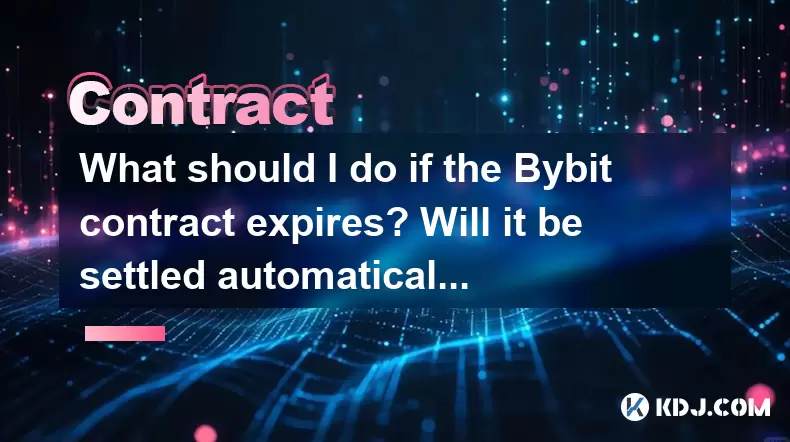
If you are a Bybit user and your contract is approaching its expiration date, you might be wondering what steps you need to take and whether the settlement process is automatic. In this article, we will explore the process of contract expiration on Bybit, how automatic settlement works, and what you should do to ensure a smooth experience.
Understanding Bybit Contract Expiration
Bybit offers various types of contracts, including perpetual contracts and futures contracts. Each type of contract has its own expiration rules. Perpetual contracts do not have an expiration date, meaning they can be held indefinitely. On the other hand, futures contracts have a specific expiration date, after which they must be settled.
When a futures contract on Bybit reaches its expiration date, it will be settled automatically. This means that you do not need to take any action for the contract to be settled. However, understanding the settlement process and preparing for it can help you manage your positions more effectively.
Automatic Settlement Process on Bybit
The automatic settlement process on Bybit is designed to be seamless for users. When a futures contract expires, Bybit will automatically calculate the final settlement price based on the index price at the time of expiration. This final settlement price is used to determine the profit or loss on your position.
Here is how the automatic settlement process works:
- Calculation of Final Settlement Price: Bybit uses a specific index price, which is an average of prices from multiple exchanges, to determine the final settlement price. This ensures that the settlement is fair and reflects the market conditions at the time of expiration.
- Profit and Loss Calculation: Once the final settlement price is determined, Bybit calculates the profit or loss on your position. If your position is in profit, the profit will be credited to your account. If it is in loss, the loss will be debited from your account.
- Position Closure: After the profit and loss are calculated and settled, your futures contract position will be closed automatically. You will no longer have an open position in that particular contract.
Preparing for Contract Expiration
While the settlement process is automatic, there are steps you can take to prepare for contract expiration and manage your positions effectively:
- Monitor Your Positions: Keep an eye on your open positions as the expiration date approaches. This will help you understand your potential profit or loss and make any necessary adjustments.
- Review Your Strategy: Consider your trading strategy and whether you want to hold your position until expiration or close it earlier. If you decide to close your position before expiration, you can do so manually through the Bybit platform.
- Check Your Margin: Ensure that you have sufficient margin in your account to cover any potential losses at expiration. Bybit may require additional margin as the expiration date nears, so it's important to stay on top of your account balance.
Managing Your Positions Before Expiration
If you decide to close your position before the expiration date, you can do so through the Bybit platform. Here are the steps to close a futures contract position on Bybit:
- Log into Your Bybit Account: Access your Bybit account using your credentials.
- Navigate to the Futures Trading Section: Go to the futures trading section of the platform where your open positions are listed.
- Select the Position to Close: Identify the futures contract position you want to close and select it.
- Choose the Order Type: Decide whether you want to place a market order or a limit order to close your position. A market order will close your position at the current market price, while a limit order allows you to set a specific price at which you want to close.
- Submit the Order: Once you have chosen the order type and set any necessary parameters, submit the order to close your position.
What Happens After Settlement?
After the automatic settlement of your futures contract, you will receive a notification from Bybit confirming the settlement. The profit or loss from the settlement will be reflected in your account balance. You can then use these funds to open new positions, withdraw them, or keep them in your account for future trading.
It's important to review the settlement details and ensure that the profit or loss calculation aligns with your expectations. If you have any questions or concerns about the settlement, you can reach out to Bybit's customer support for assistance.
Frequently Asked Questions
Q: Can I roll over my futures contract to a new expiration date on Bybit?
A: Bybit does not currently offer a feature to roll over futures contracts to a new expiration date. If you want to maintain a position in the same underlying asset, you would need to close your current position and open a new one with a different expiration date.
Q: What happens if I do not have enough margin in my account at the time of contract expiration?
A: If you do not have sufficient margin in your account at the time of contract expiration, Bybit may liquidate your position to cover any losses. It's important to monitor your margin levels and ensure you have enough funds to cover potential losses.
Q: Can I trade perpetual contracts on Bybit without worrying about expiration?
A: Yes, perpetual contracts on Bybit do not have an expiration date, so you can hold them indefinitely. However, you should still monitor your positions and manage your margin to avoid liquidation.
Q: How can I check the expiration date of my futures contract on Bybit?
A: To check the expiration date of your futures contract on Bybit, log into your account, navigate to the futures trading section, and look at the details of your open positions. The expiration date will be listed along with other contract details.
Disclaimer:info@kdj.com
The information provided is not trading advice. kdj.com does not assume any responsibility for any investments made based on the information provided in this article. Cryptocurrencies are highly volatile and it is highly recommended that you invest with caution after thorough research!
If you believe that the content used on this website infringes your copyright, please contact us immediately (info@kdj.com) and we will delete it promptly.
- BONK, PENGU, and Cold Wallet: What's Hot and What's Not in Crypto Right Now
- 2025-08-07 00:30:32
- Mantle Rockets, WeWake Presale: Chasing 100x Potential in Web3
- 2025-08-07 01:13:45
- Solana Price and the Rise of Remittix: Revolutionizing Crypto Payments
- 2025-08-07 01:13:45
- BlockSack (BSACK): The Base Meme Coin Taking Over the Chain
- 2025-08-07 00:30:32
- Ethereum, Transaction Volumes, and SEC Staking: Navigating the Regulatory Landscape
- 2025-08-06 22:30:13
- Crypto, Tokens, and Metrics: Navigating the New Frontier
- 2025-08-06 23:09:22
Related knowledge
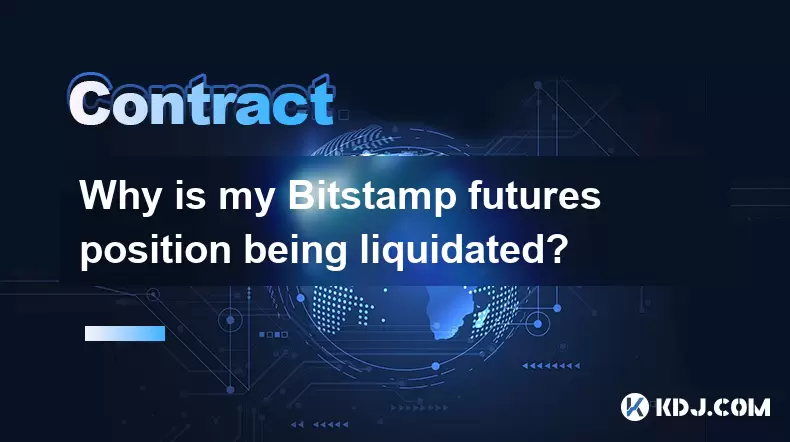
Why is my Bitstamp futures position being liquidated?
Jul 23,2025 at 11:08am
Understanding Futures Liquidation on BitstampFutures trading on Bitstamp involves borrowing funds to open leveraged positions, which amplifies both po...
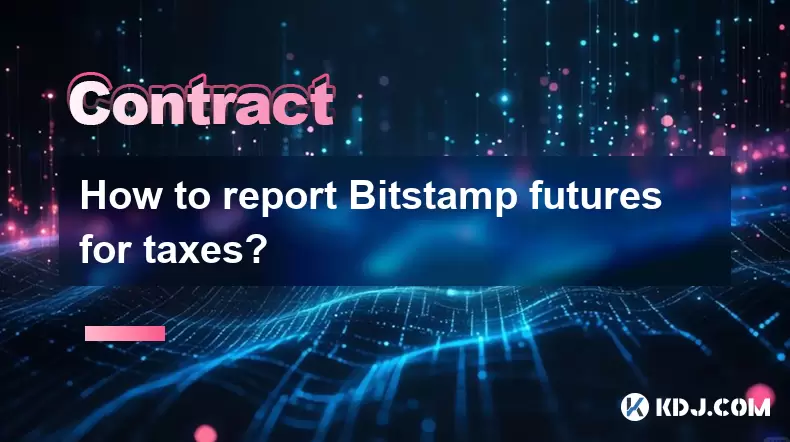
How to report Bitstamp futures for taxes?
Jul 30,2025 at 08:35am
Understanding Bitstamp Futures and Taxable EventsWhen trading Bitstamp futures, it’s essential to recognize that these financial instruments are treat...
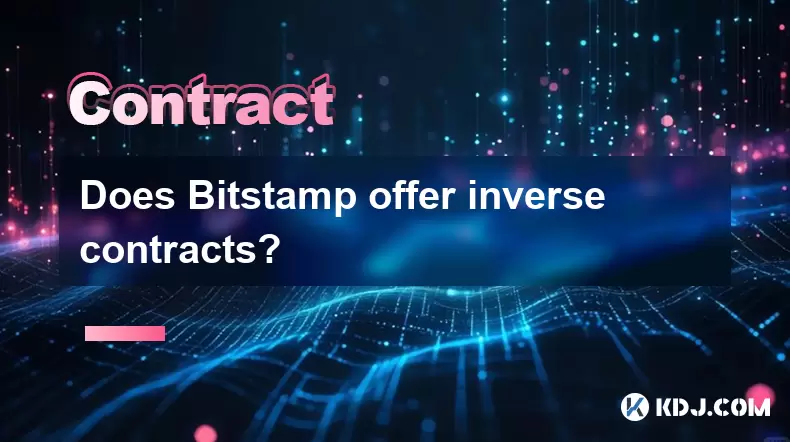
Does Bitstamp offer inverse contracts?
Jul 23,2025 at 01:28pm
Understanding Inverse Contracts in Cryptocurrency TradingIn the realm of cryptocurrency derivatives, inverse contracts are a specific type of futures ...
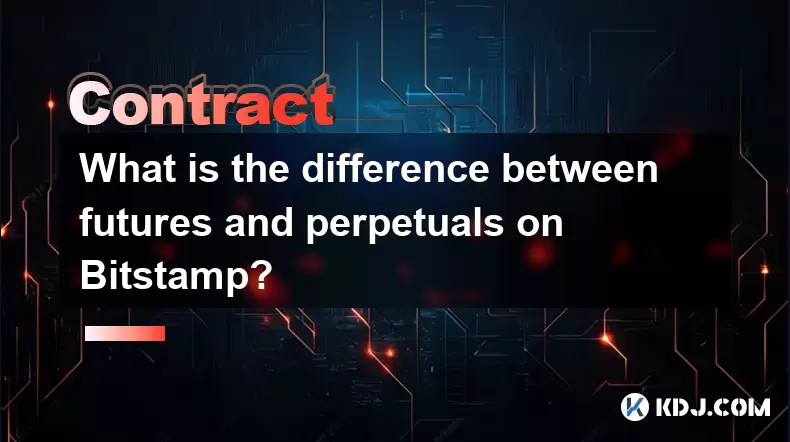
What is the difference between futures and perpetuals on Bitstamp?
Jul 27,2025 at 05:08am
Understanding Futures Contracts on BitstampFutures contracts on Bitstamp are financial derivatives that allow traders to speculate on the future price...
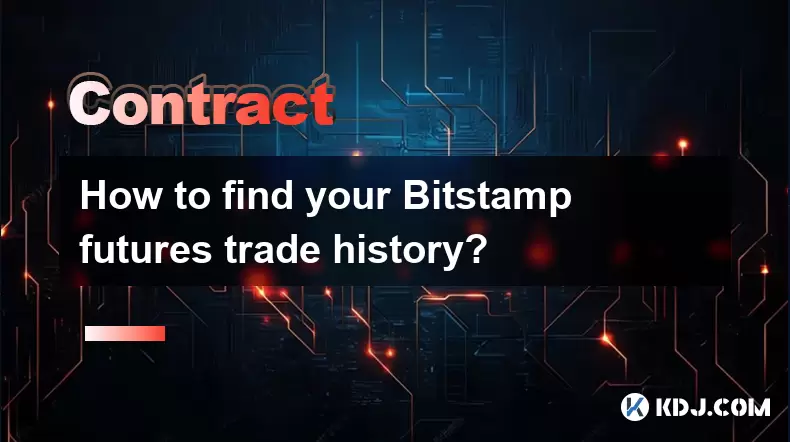
How to find your Bitstamp futures trade history?
Jul 23,2025 at 08:07am
Understanding Bitstamp and Futures Trading AvailabilityAs of the current state of Bitstamp’s service offerings, it is critical to clarify that Bitstam...
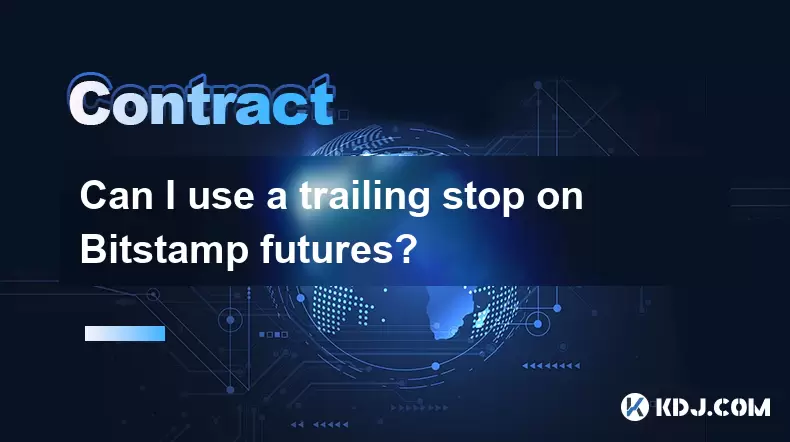
Can I use a trailing stop on Bitstamp futures?
Jul 23,2025 at 01:42pm
Understanding Trailing Stops in Cryptocurrency TradingA trailing stop is a dynamic type of stop-loss order that adjusts automatically as the price of ...

Why is my Bitstamp futures position being liquidated?
Jul 23,2025 at 11:08am
Understanding Futures Liquidation on BitstampFutures trading on Bitstamp involves borrowing funds to open leveraged positions, which amplifies both po...

How to report Bitstamp futures for taxes?
Jul 30,2025 at 08:35am
Understanding Bitstamp Futures and Taxable EventsWhen trading Bitstamp futures, it’s essential to recognize that these financial instruments are treat...

Does Bitstamp offer inverse contracts?
Jul 23,2025 at 01:28pm
Understanding Inverse Contracts in Cryptocurrency TradingIn the realm of cryptocurrency derivatives, inverse contracts are a specific type of futures ...

What is the difference between futures and perpetuals on Bitstamp?
Jul 27,2025 at 05:08am
Understanding Futures Contracts on BitstampFutures contracts on Bitstamp are financial derivatives that allow traders to speculate on the future price...

How to find your Bitstamp futures trade history?
Jul 23,2025 at 08:07am
Understanding Bitstamp and Futures Trading AvailabilityAs of the current state of Bitstamp’s service offerings, it is critical to clarify that Bitstam...

Can I use a trailing stop on Bitstamp futures?
Jul 23,2025 at 01:42pm
Understanding Trailing Stops in Cryptocurrency TradingA trailing stop is a dynamic type of stop-loss order that adjusts automatically as the price of ...
See all articles

























































































